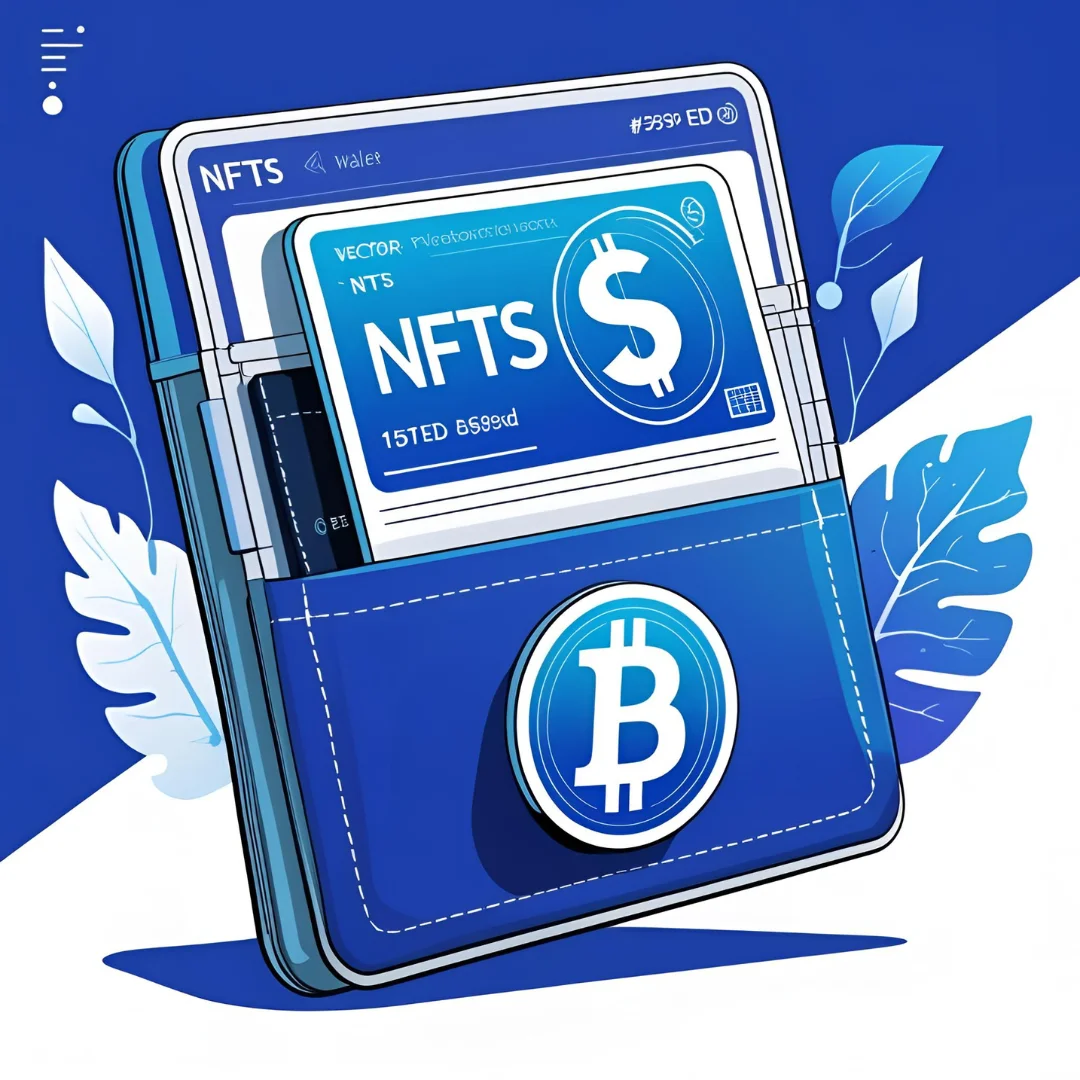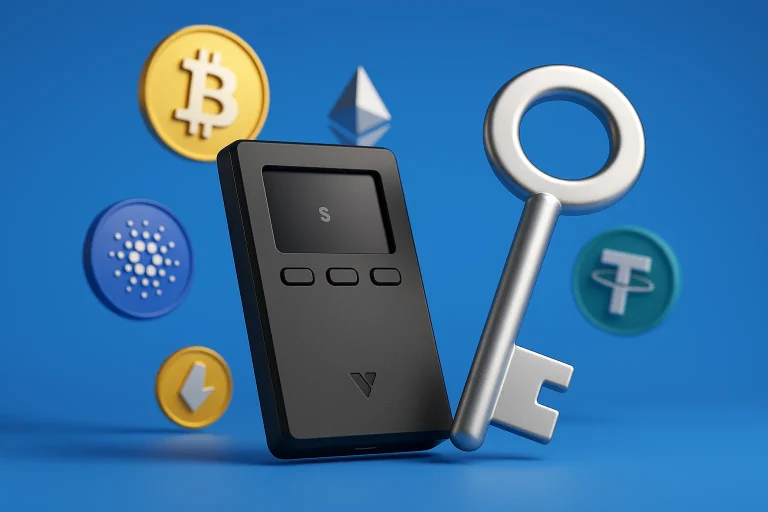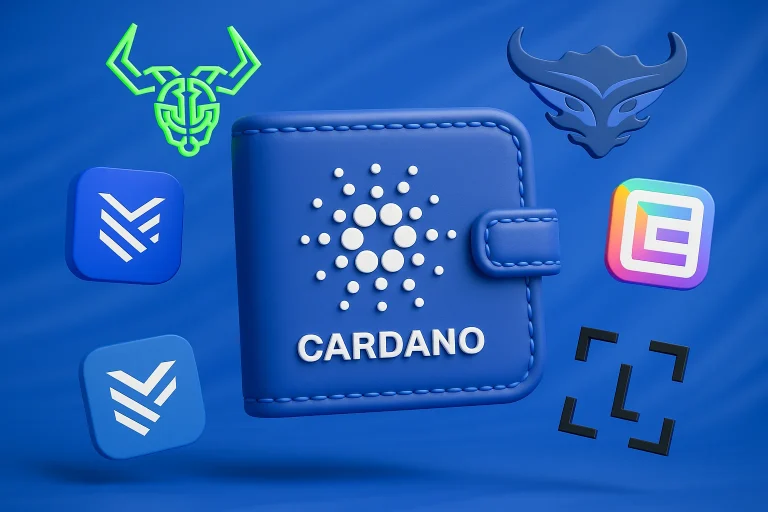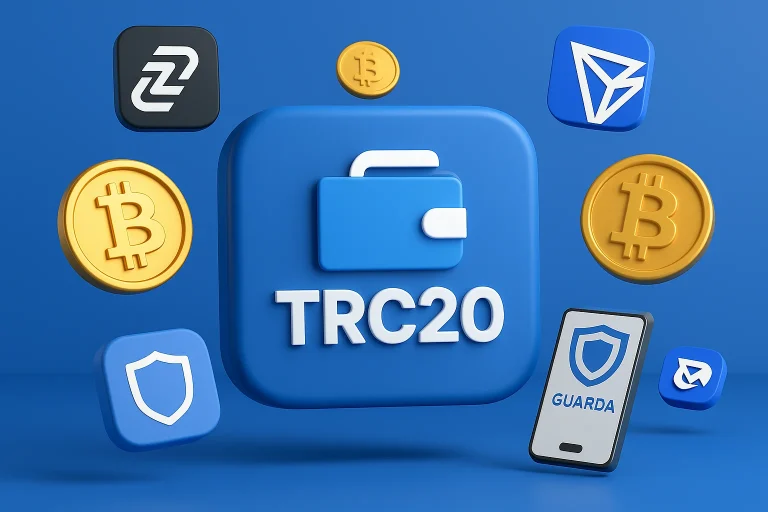Are you concerned about the safety of your valuable NFTs? In 2024, NFT trading hit an all-time high, totaling $8.83 billion in sales. Yet, many collectors still store their digital assets in hot wallets or on exchanges, not realizing the risks involved.
Millions are lost daily as hot wallets stay connected to the internet, making them easy targets for hackers and other cybercriminals. With the hardware wallet market growing rapidly, an increasing number of people are switching to safer methods for storing their digital assets.
An NFT hardware wallet keeps your private keys offline and uses strong encryption to protect your digital assets. In this guide, we’ll look at the best NFT hardware wallets for 2026 and help you find the right one for your needs.
Table of contents
Best NFT Hardware Wallets: Quick Comparison | |
|---|---|
| Ledger Nano X | The Best NFT Hardware Wallet Overall Security Rating: CC EAL5+ Secure Element Connectivity: Bluetooth & USB-C Mobile App: Ledger Live Display: OLED screen Backup: 24-word recovery phrase |
| Trezor Model T | Best Hardware Wallet for Advanced Users Security Rating: PIN & passphrase protection Connectivity: USB-C Mobile App: Trezor Suite Display: Color touchscreen Backup: Shamir Backup (optional) |
| Ledger Nano S Plus | Best Budget NFT Hardware Wallet Security Rating: CC EAL5+ Secure Element Connectivity: USB-C Mobile App: Ledger Live Display: OLED screen Backup: 24-word recovery phrase |
| SafePal S1 | Best Cold Wallet for Mobile Users Security Rating: Air-gapped, self-destruct feature Connectivity: QR code-based Mobile App: SafePal app Display: Small color screen Backup: 12/24-word recovery phrase |
| Ellipal Titan 2.0 | Best Air-Gapped Cold Storage Wallet Security Rating: Fully air-gapped, anti-tamper Connectivity: QR code-based Mobile App: Ellipal app Display: 4-inch touchscreen Backup: 12/24-word recovery phrase |
1. Ledger Nano X, Best Overall NFT Hardware Wallet
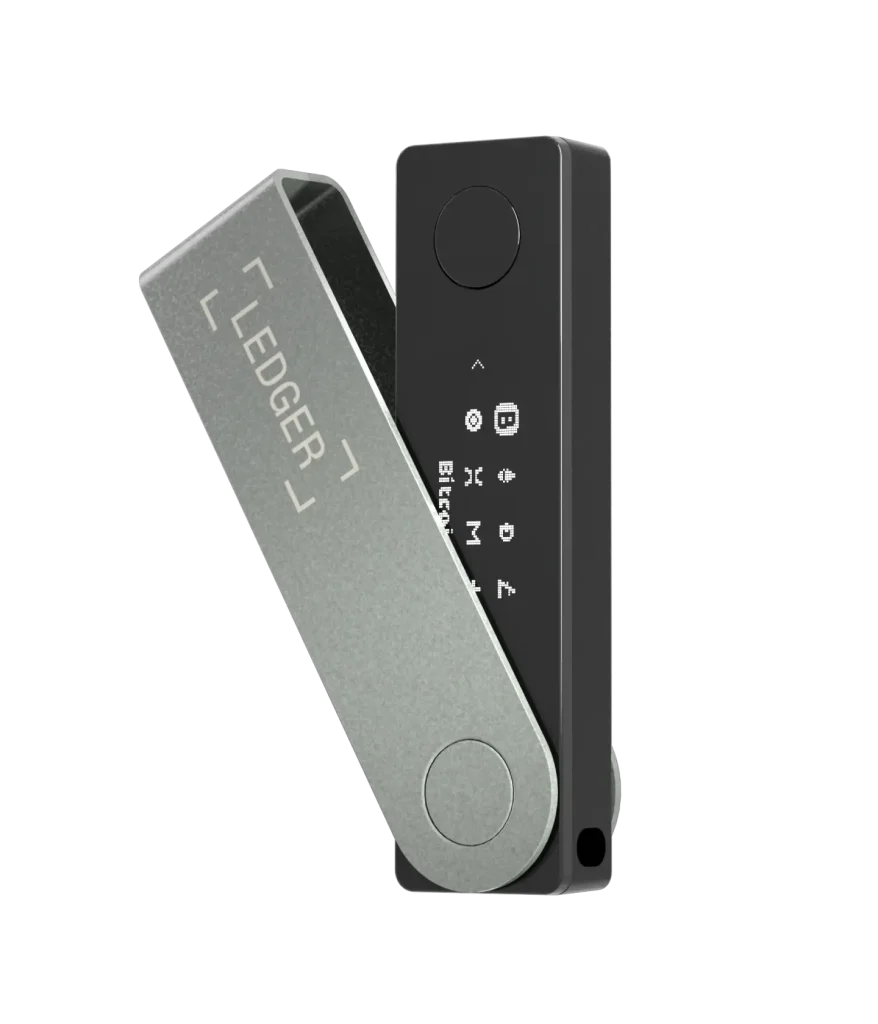
The Ledger Nano X is a top choice for NFT collectors and crypto fans. It offers strong security and is easy to use. With Bluetooth and the Ledger Live app, you can manage your NFTs and other digital assets on your phone or computer.
It’s a perfect mix of safety and convenience. If you’re new to Ledger, our Ledger Nano X setup guide walks you through pairing, securing, and using apps like Ethereum and Polygon for NFT storage.
Key Features: | |
|---|---|
| NFT Support | Native NFT management in Ledger Live app with direct viewing and trading. |
| Storage Capacity | Install up to 100 apps simultaneously for maximum flexibility. |
| Blockchain Support | 5,500+ cryptocurrencies, including all major NFT blockchains. |
| Security Chip | CC EAL5+ certified Secure Element for military-grade protection. |
| Connectivity | Bluetooth and USB-C for mobile and desktop use. |
| Battery Life | 8+ hours of continuous use with rechargeable battery. |
| Third-party Integration | Works with Rarible, OpenSea, and Rainbow Me. |
| Recovery Options | 24-word BIP39 recovery phrase with PIN protection. |
Why We Choose It
The Ledger Nano X offers top-level security, Bluetooth, and an easy-to-use app, making it a great choice for managing NFTs and crypto on the go.
2. Trezor Model T, Best Hardware Wallet for Advanced Users
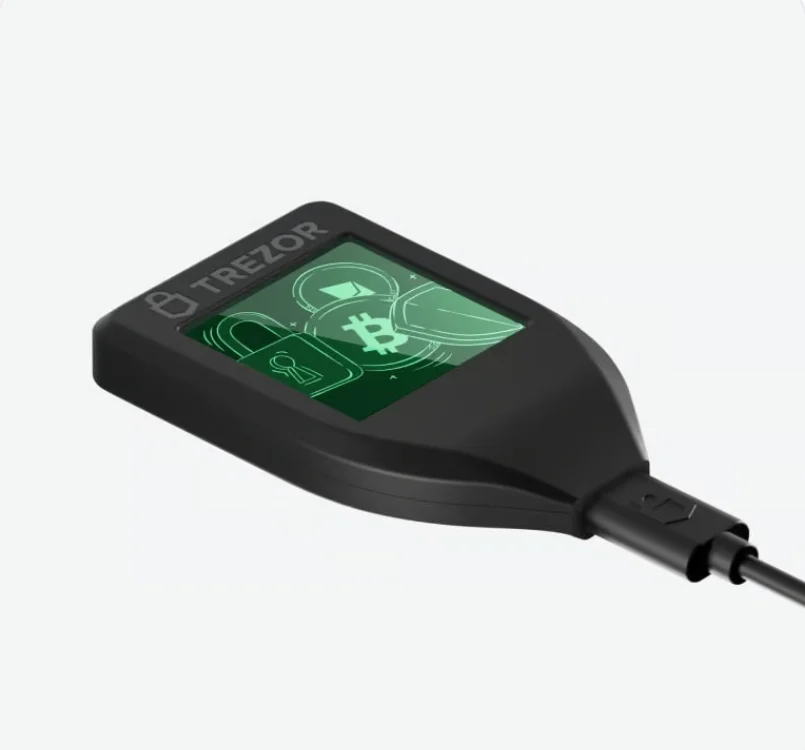
The Trezor Model T is an excellent choice for NFT collectors who want complete control over their security. Its big color touchscreen makes it easy to use and offers advanced features like Shamir Backup for extra protection.
This wallet is ideal for tech-savvy users who want to customize and fine-tune their NFT security. For more details, check out our in-depth Model T review.
Key Features: | |
|---|---|
| NFT Integration | Compatible with MetaMask and 40+ third-party wallets |
| Display | 1.54″ color touchscreen for detailed transaction review |
| Security Features | PIN protection, passphrase, and optional Shamir Backup |
| Multi-chain Support | Supports Ethereum, Polygon, and other NFT blockchains |
| Recovery Options | Traditional 12/24-word seed or advanced Shamir Backup |
| Open Source | Fully open-source hardware and software |
| Privacy Protection | Built-in Tor network support for enhanced anonymity |
| Physical Security | Tamper-evident holographic seals |
Why We Choose It
With its advanced security protocols, passphrase options, and an intuitive touchscreen, the Trezor Model T is perfect for users seeking a highly secure and customizable NFT wallet experience.
3. Ledger Nano S Plus, Best Budget NFT Hardware Wallet
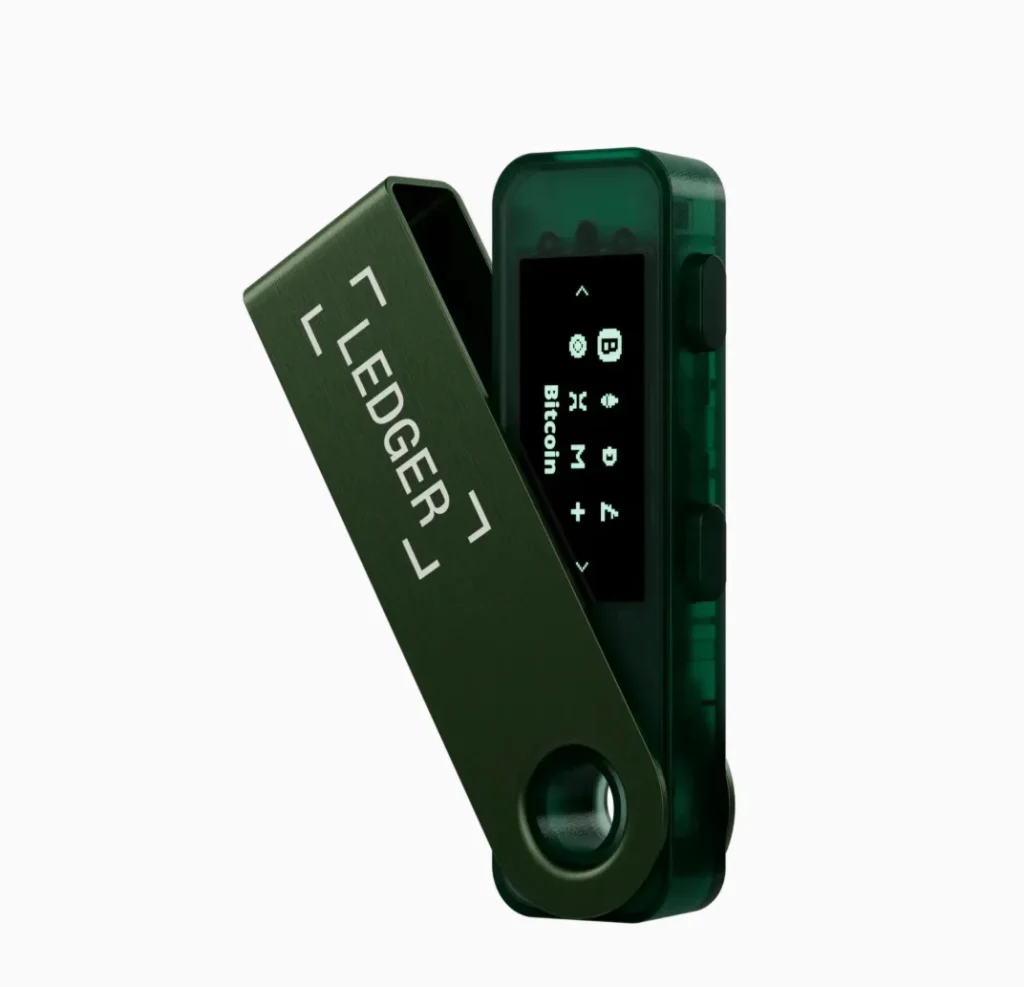
The Ledger Nano S Plus proves you don’t need to break the bank to secure your NFTs properly. This wallet delivers the same bank-grade security as its premium siblings at a fraction of the cost.
It is the perfect entry point for new NFT collectors or those with smaller collections who still want institutional-level protection.
Key Features: | |
|---|---|
| Security Level | Same CC EAL5+ Secure Element as Nano X |
| Storage Capacity | Install 100+ apps (same as Nano X) |
| NFT Support | Full NFT management through Ledger Live |
| Blockchain Coverage | 5,500+ supported cryptocurrencies |
| Connectivity | USB-C connection (no Bluetooth) |
| Display | Clear OLED screen for transaction verification |
| Build Quality | Durable stainless steel and plastic construction |
| Recovery System | Standard 24-word BIP39 recovery phrase |
Why We Choose It
The Ledger Nano S Plus combines strong security and broad crypto support in an affordable, easy-to-use device. It’s the perfect wallet for NFT collectors who want safety without spending too much.
4. SafePal S1, Best Cold Wallet for Mobile Users
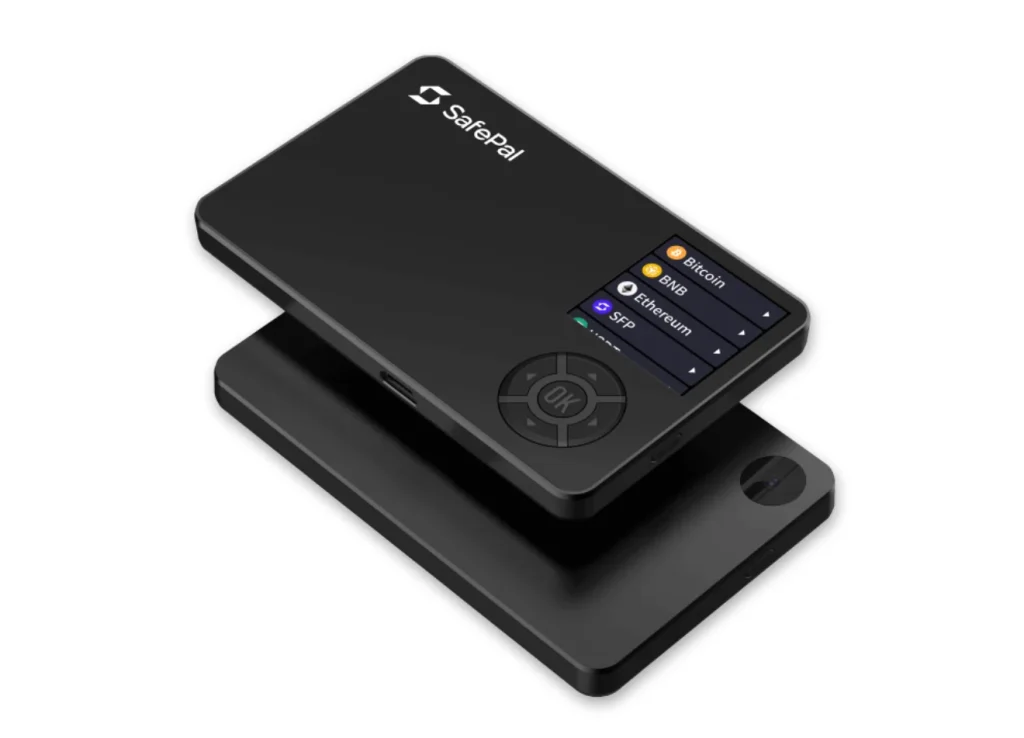
The SafePal S1 revolutionizes mobile NFT security with its innovative air-gapped wallet design and QR code communication system. This wallet is perfect for mobile-first NFT traders who want maximum security without being tied to a computer.
It offers a unique combination of complete offline storage with seamless smartphone integration.
Key Features: | |
|---|---|
| Air-Gap Technology | Never connects to the internet or any device. |
| QR Code Communication | Secure transaction signing via QR codes. |
| Self-Destruct Feature | Automatic data wipe after multiple wrong attempts. |
| Mobile Optimization | Explicitly designed for smartphone use. |
| Multi-blockchain | Supports 20+ blockchains, including all major NFT networks. |
| Battery Life | Rechargeable battery with weeks of standby time. |
| Security Features | PIN protection with tamper detection. |
| Wallet Integration | Works with the SafePal mobile app ecosystem. |
Why We Choose It
The SafePal S1 combines cutting-edge air-gapped security with a self-destruct mechanism to protect your NFTs from any threat. For mobile-first collectors, it’s the ultimate wallet for peace of mind and total protection.
5. Ellipal Titan 2.0, Best Air-Gapped Cold Storage Wallet
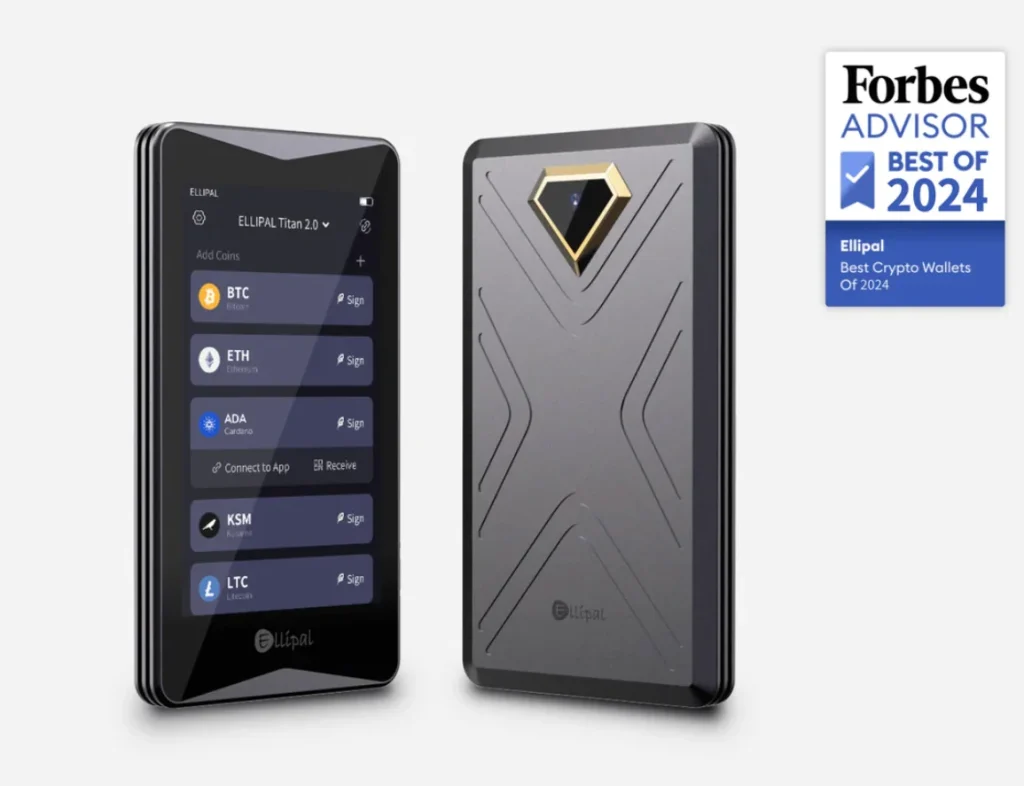
The Ellipal Titan 2.0 is a top choice for people who want the best security for their NFTs. It has a large 4-inch touchscreen and is completely isolated from any network connections, making it highly secure.
It’s perfect for serious NFT collectors and institutional users who care most about safety and want a high-quality experience for their valuable collections.
Key Features | |
|---|---|
| Security Architecture | Fully air-gapped with no USB, Bluetooth, or Wi-Fi connectivity |
| Communication Method | QR code-based transaction signing and data transfer |
| Multi-Chain Support | Compatible with multiple NFT standards and blockchains |
| Mobile Integration | Works exclusively with the Ellipal mobile app ecosystem |
| Recovery Options | Standard 12/24-word seed phrase backup system |
| Battery Performance | Rechargeable battery with extended standby time |
| Physical Design | Premium build quality with a larger form factor |
| Network Isolation | Complete offline operation for maximum security |
Why We Choose It
With its uncompromising security features and user-friendly touchscreen, Ellipal Titan 2.0 offers the best cold wallet experience for securely storing valuable NFT assets offline.
How to Choose the Best NFT Hardware Wallet for Your Needs
Choosing the right NFT hardware wallet can feel overwhelming, but focusing on a few key factors will make it much easier.
Let’s break it down to help you find the best hardware wallet for managing and storing your NFT assets and other crypto holdings.
1. Compatibility With Popular NFT Platforms
First, ensure your wallet supports the blockchains and marketplaces you use. Most NFTs live on Ethereum, but other blockchains, such as Polygon, Solana, and Binance Smart Chain, are popular among NFT enthusiasts.
Your NFT wallet should work seamlessly with major NFT marketplaces such as:
- OpenSea;
- Rarible;
- Blur;
Choosing a hardware wallet that supports Layer 2 solutions like Polygon or Arbitrum is also smart. These wallets can lower transaction fees when you buy or trade NFTs.
2. Support for Multiple Cryptocurrencies and Digital Assets
The best hardware wallet isn’t just for your NFTs; it should also handle your other crypto assets. Look for crypto wallets that support:
- Major coins like Bitcoin and Ethereum;
- Altcoins and DeFi tokens;
- NFT standards like ERC-721 and ERC-1155;
Having one secure wallet that can manage all your digital assets, including NFTs and crypto coins, saves time and reduces hassle.
Choose a wallet that regularly updates coin support so you can manage new digital assets as they emerge.
3. User-Friendly Interface and Mobile Integration
A premium hardware wallet should be easy to use, whether you’re new to NFTs or an experienced collector. Choose a secure wallet with the following:
- An intuitive interface for smooth navigation;
- A mobile app to manage your NFTs and crypto on your mobile phone;
- Wireless connectivity for convenience;
Many NFT collectors prefer using the Ledger Live app with their Ledger hardware wallet, which allows them to manage NFTs directly from their smartphones. Some other wallets offer features like QR code scanning or mobile device pairing to make signing transactions even easier.
Think about what works best for you: physical buttons, touchscreens, or a combination.
4. Backup and Recovery Options
Backing up your hardware wallet is essential to protecting your NFT assets and crypto coins if your wallet is lost or damaged. Most wallets use a secret recovery phrase (a seed phrase) to restore access.
Some premium hardware wallets, like the Ledger Nano series, offer advanced backup options like Shamir Backup, which splits your recovery phrase into multiple parts for enhanced security.
Look for wallets that make it easy to test your backup and offer multiple secure storage methods. Recovery should be:
- Easy to perform;
- Private and secure, without exposing your private keys.
5. Device Security and Encryption Standards
Security is the main reason for choosing a cold wallet (hardware wallet) instead of software wallets or hot wallets (connected to the internet). The best NFT wallets offer unparalleled security with features like:
- Certified secure elements (hardware-level security);
- Military-grade encryption and secure boot;
- Tamper-resistance and self-destruct mechanisms;
- Passphrase protection and duress PINs for emergencies;
Choosing a hardware device with a proven security track record is essential if you’re concerned about online threats. Open-source firmware is a bonus; it allows independent audits and builds trust.
Security Best Practices for NFT Hardware Wallets
In 2024, the cryptocurrency sector saw a significant increase in thefts, with over $2.2 billion stolen, a 17% jump from the previous year.
Nearly 70% of these losses were caused by stolen private keys and seed phrases. This highlights how crucial it is to securely store and protect your seed phrase and use a secure NFT hardware wallet.
Here’s how to keep your NFTs and crypto assets as safe as possible:
Buy Only from Trusted Sources
Always buy your hardware wallet directly from the manufacturer or authorized retailers. This helps avoid tampered or fake devices.
Never Share Your Seed Phrase
Keep your seed phrase offline. Don’t store it on your phone, computer, or cloud storage. Never share it with anyone, even if they claim to be support staff.
Update Your Wallet Regularly
Ensure your wallet’s firmware is always up to date. Regular updates bring your device the latest security patches and features.
Use Strong PINs and Extra Security
Choose a strong, unique PIN for your wallet. If possible, enable extra features like passphrase protection for even more security.
Verify Transactions Carefully
Before confirming any transaction, double-check the details on your hardware wallet’s screen to avoid scams or mistakes.
Keep a Low Profile
Don’t talk publicly about your crypto holdings or NFT assets. Keeping a low profile adds an extra layer of security.
Separate Storage for Different Needs
Consider using multiple wallets for different purposes. For example, one wallet could be used for long-term cold storage, and another for active trading or daily NFT transactions.
By following these best practices, you’ll significantly reduce the risk of theft or loss and ensure the security of your NFTs and crypto assets.
FAQ
What Is an NFT Wallet?
An NFT wallet is a digital tool for securely storing, managing, and transferring NFTs (non-fungible tokens). It uses blockchain technology to ensure ownership and protect digital assets.
How Do I Get an NFT Wallet?
You can get an NFT wallet by purchasing a hardware wallet or downloading a software wallet that supports NFTs. Popular hardware wallets include Ledger and Trezor, while software wallets like MetaMask work too.
Can I Store All Types of Digital Assets on One Wallet?
Yes! Many NFT hardware wallets also support other digital assets, like cryptocurrencies and tokens. Just ensure your wallet is compatible with the assets you want to store.
Is Cold Storage Safer Than Hot Wallets?
Cold storage (hardware wallets) is generally safer because your private keys are offline, making them less vulnerable to hacks. Hot wallets (online wallets) are more convenient but carry higher security risks.
How Do I Recover NFTs if I Lose My Hardware Wallet?
If you lose your hardware wallet, you can recover your NFTs using your recovery seed phrase. Store this phrase safely, as it’s the key to restoring your assets on a new device.
Final Thoughts
Choosing the best hardware wallet is one of the most innovative ways to protect your NFTs and other crypto assets.
Among the top choices, the Ledger Nano X stands out for its all-around performance and ease of use. If you’re a more advanced user, the Trezor Model T offers customizable features and a touchscreen interface.
Looking for a more budget-friendly option? The Ledger Nano S Plus provides robust security at a lower price. Mobile users praise the SafePal S1 for its portable, cold storage design, while the Ellipal Titan 2.0 is perfect if you want ultimate air-gapped security for your NFT assets.
Whether you’re a new or seasoned NFT collector, picking the best NFT hardware wallet that fits your needs will give you confidence and peace of mind.
Take the time to explore these premium wallets and enjoy knowing your digital assets are safe and under your complete control.

